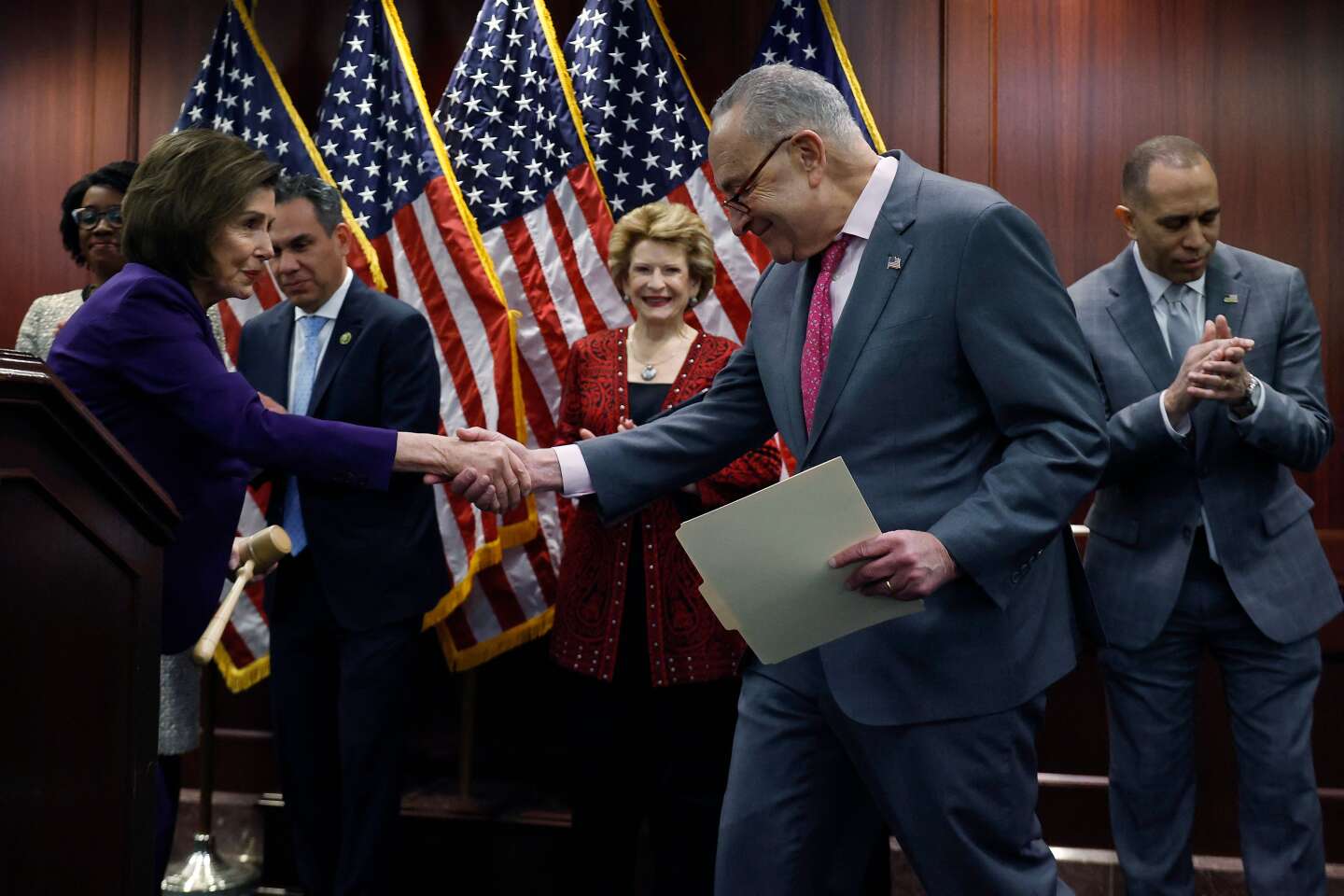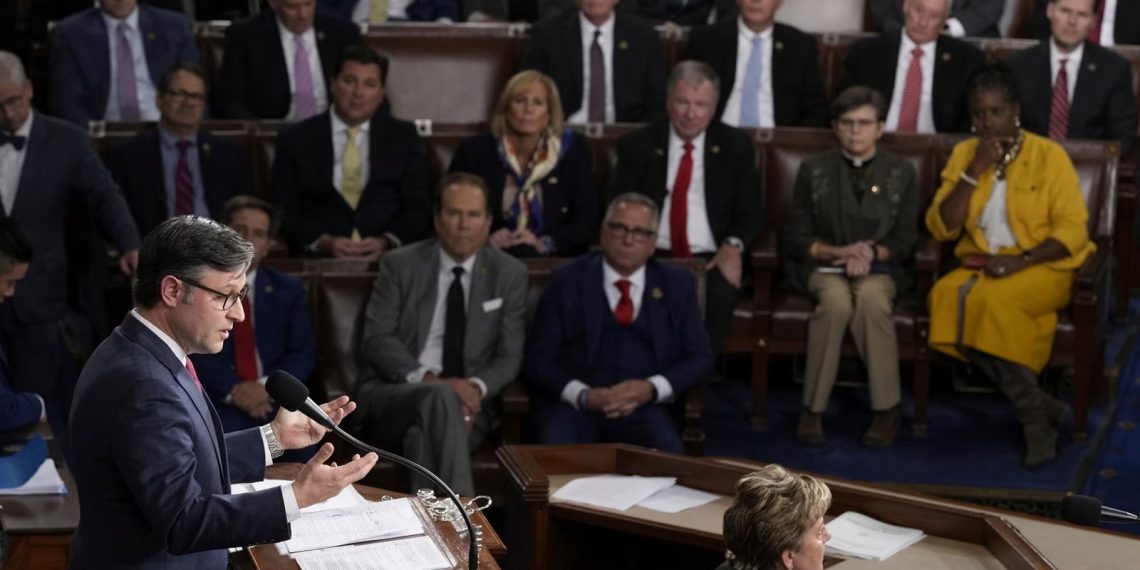In the early hours of Saturday, the U.S. Congress passed a $1.2 trillion budget bill, ensuring government funding until September 30 and avoiding a partial shutdown. The bill, supported by a vote of 74-24, will fund crucial federal agencies like Homeland Security, Justice, State, and Treasury.
Notably absent from the bill was funding for military aid to Ukraine, Taiwan, and Israel, included in a separate Senate-passed bill disregarded by the Republican-led House of Representatives.
Despite the bill’s eventual passage, deep-seated partisan divisions emerged, exposing fractures within the Republican majority in the House.

Representative Marjorie Taylor Greene voiced opposition, even threatening to challenge Speaker Mike Johnson‘s leadership for allowing the bill’s passage. However, Johnson maneuvered to bypass staunch opposition, ensuring the bill’s approval with bipartisan support.
The bill’s proponents, including Republican Senator Susan Collins, emphasized its significance as a national security measure, with 70% of the funding allocated to bolstering defense capabilities, supporting military personnel, and strengthening alliances.
Critics, such as Senator Rand Paul, denounced the bill as fiscally irresponsible, citing concerns about inflation and excessive government spending.
The bill’s passage marks a departure from months of short-term stopgap measures, signaling a move away from recurring government funding crises.
The last partial government shutdown occurred during Donald Trump’s presidency in late 2018 to early 2019, over disagreements regarding border wall funding.

In a display of internal discord, Greene’s attempt to challenge Johnson’s leadership echoed previous instances of Republican infighting. However, her efforts did not culminate in an immediate vote, reflecting the delicate balance within the party.
Challenges persist for Johnson, particularly as the departure of two caucus members threatens to narrow his majority. With the budget bill secured, Congress adjourns for a two-week break, postponing further deliberations on critical security assistance packages for Ukraine, Israel, and Taiwan.




